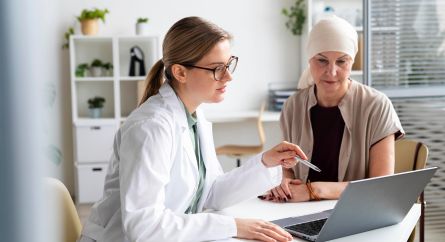Questions to ask your doctor about cancer screening
Questions to ask Screening tests are used to find cancer in people without symptoms. Screening increases the chance of catching some cancers early, when they're small, haven't spread and may be easier to treat. You may be old enough to start screening.
You may even be late for your screening test due to the COVID-19 pandemic. During the pandemic, many elective medical procedures, including screening tests, have been suspended, reducing the number of people screened for cancer.
Here are some questions you can ask your doctor if you are considering starting screening or getting screening back on track :
- What cancer screening tests are recommended for someone my age?
- How often should I take the screening test?
- Do I need to see a specialist to perform my screening test or can you order them all?
- Which screening test should I take first?
- Should I get tested right away or can I wait?
- How long can I wait to schedule my screening test?
- If I cancel or reschedule my screening appointment, when should I reschedule it?
- Is there a risk if I miss my regular screening test?
- Is it safe to get tested now?
- Where can I get tested?
- Given my personal and family medical history, my risk factors, and when I was last tested, what are the risks and benefits of testing now versus testing later?
- Is there a screening test I can do at home?
- How do I order screening tests?
- Can anyone help me arrange a screening test?
- Will my health insurance cover my screening tests?
- How much does the screening test cost if it is not covered by insurance?
- When will I receive my test results and who will give them to me?
- Should I come back to see you at another appointment for results?
- What if my results show signs of possible cancer?
These examples can help you find questions about starting or resuming routine cancer screenings as soon as possible. Also, it's important to remember that if you have any signs or symptoms of cancer, or any other risk factor that puts you in a high-risk group, you should tell your doctor or healthcare professional as soon as possible.

